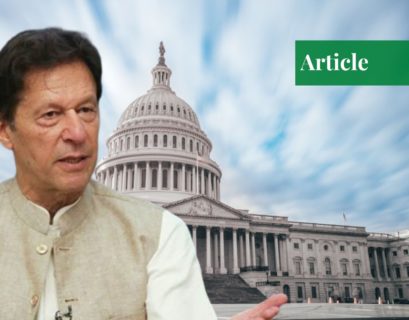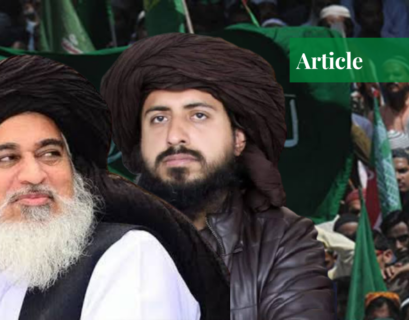Hafsa Ammar is a graduate of the National Defence University, Islamabad. Her areas of expertise are narrative building and propaganda warfare, centered around the Soviet Union and modern-day Russia.
Introduction
A functioning democracy demands that the citizens be educated and participate wholeheartedly. Political science envelops every part of life, from policies that surround healthcare for labor and the lower class to remittances and taxes that drive the political economy of the nation. It is an essential science used to plan the future functioning of government and society. It overlaps with other social science, but much of its emphasis remains on power and its dissolution.
The Machiavellian analysis of political science labels it to be an empirical study, maintaining that political actors and bodies are realists in nature and work to maximize power by any means. There are several political philosophers who, with their theories and ideologies, have advanced the field.
Plato
The name Plato is probably recognizable across the globe at this moment in time. He was one of the earliest political philosophers from Athens who made it his aim to reform society fully – from philosophy and leadership to politics and citizenry. His famous work The Republic focuses on the demands of the masses – how they’re not just limited to materialistic wants but have an emotional aspect as well.
Plato divided society into three distinct categories:
- The Leadership
- The Military
- The Common Man

Plato realized how easy it would be to unite all three of the above to work for one another in harmony when manipulated or ‘gently persuaded’ by state-owned propaganda. The philosopher also stood staunchly against democracy and democratic ideals, stating that it would eventually become a majoritarian government.
He did not think all men were equal in the sense of education or intellectual prowess, leaving them ill-equipped to hold a similar stance against a philosopher when it came to elected officials of the state.
Al-Farabi
Al-Farabi was another pioneer of political science and his name often graces sight when talking about the roots of statehood and government. Hailing from Central Asia, Al-Farabi wrote many important works, the most significant one being Al-Madina al-Fadila or The Ideal State.

Farabi concluded, after a lot of research and observation of society, that the ruler of a state should be level-headed, kind, just, and knowledgeable within a variety of fields. A philosopher-king could lead his state into a world of moral and intellectual superiority.
His work had been influenced by two leading political philosophers, Aristotle and Plato, but Al-Farabi focused more on the right structuring of government according to the rules of God and wanted for his ideal state, an ethical leader who could bring the society ultimate happiness.
Al-Ghazali
Al-Ghazali was one of the prominent Muslim political philosophers of his time who, similar to Al-Farabi, focused on proper leadership for a state, specifically an Islamic nation and government. Introducing the Theory of Khilafat, Al-Ghazali explained that the concept of Shariah is one to be understood, absorbed, and obeyed in Islam and not something that human beings can change at will therefore, it means that Shariah itself is practiced or enforced by a proper authority.
How is this to be done ethically, without letting political interference corrupt the ruler? Ghazali proposed a solution in the form of two separate leadership roles: the Sultan and the Khalifa. The Sultan focuses on political affairs, alliances, and state functioning, while the Khalifa acts as a religious and spiritual leader who will work to protect the Muslim people.
The Khalifa, also called the Imam, should be a firm and just man, capable of making decisions such as calling his people to jihad. He should be wise, pious, and knowledgeable. Being an expert on Shariah will make him a man of integrity and honesty – qualities well suited to leaders of nations.
Ibn Khaldun
Ibn Khaldun was a prominent political philosopher from Tunisia and brought forth this concept that a state will never be diminished by a material or physical defeat but can only be caught victim to a psychological failure or loss. He said that over time civilizations nurture, grow, thrive, and then eventually age and fade or break apart into smaller communes when the ideologies that previously held them together become outdated.

The 14th-century philosopher wrote his manuscript The Muqqadimah, an introduction to history, which brought him much recognition later on once it had been translated into French.
Rousseau
Presented by Jean-Jacques Rousseau was the theory of general will which played a major role in formulating the foundations of political science. At its core, the theory states that if ideally, the laws and policies of a state are made by the will of the people, then authority and freedom will be complementary to one another.

Based on the idea of ‘God’s Will,’ Rousseau was convinced that this was an achievable reality as general will is two-faceted – representing the individual and the community simultaneously.
Conclusion
In conclusion, political science is a vital field of study that has been shaped by the work of many great thinkers throughout history. The pioneers of political science have all made significant contributions to our understanding of government and society. Their ideas continue to be relevant today, as we grapple with the challenges of democracy, social justice, and global governance.
Political science is a complex and ever-evolving field, but it is essential to understanding the world around us. By studying political science, we can learn about the different ways that governments can be organized, the causes of conflict and cooperation, and the challenges of building a just and sustainable society.
If you want to submit your articles, research papers, and book reviews, please check the Submissions page.
The views and opinions expressed in this article/paper are the author’s own and do not necessarily reflect the editorial position of Paradigm Shift.

















